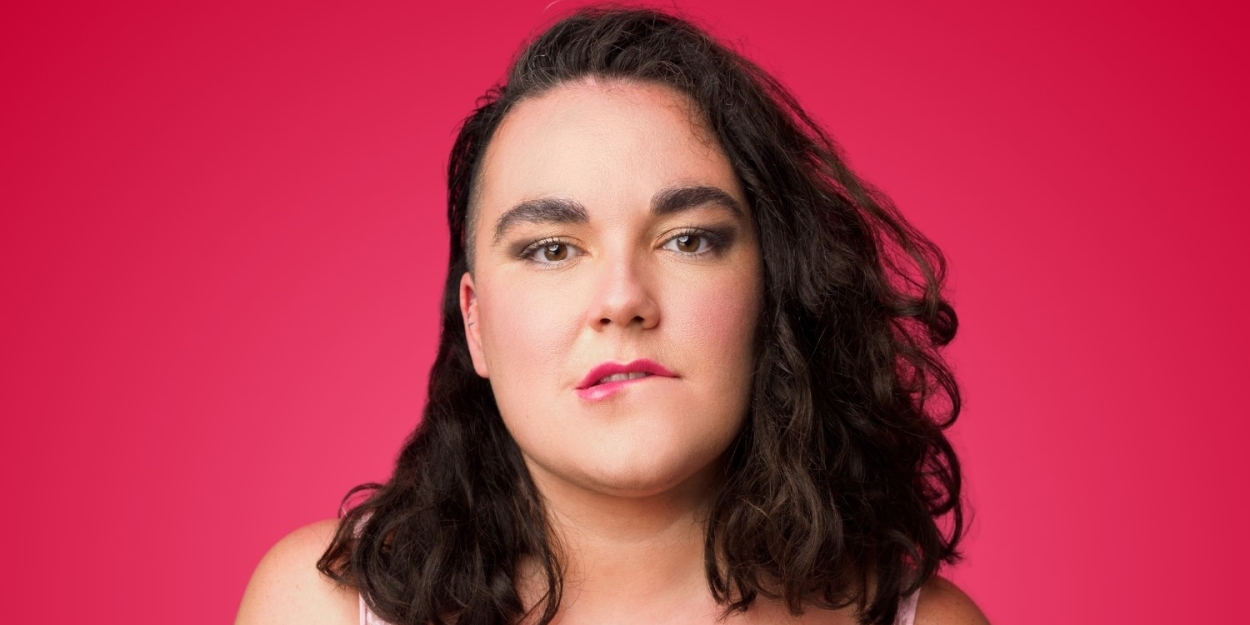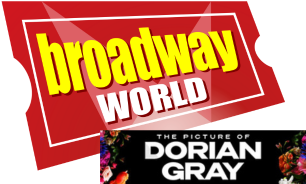Q&A: EDINBURGH 2024: Rhiannon Jenkins and Chris Griswold on GOOD GIRL
Good Girl comes to Edinburgh in August

BWW caught up with Rhiannon Jenkins and Chris Griswold about bringing Good Girl to the 2024 Edinburgh Festival Fringe.
How did you first get started in the world of comedy?
Rhiannon: I trained in musical theatre at the Royal Central School of Speech and Drama in London. After finishing, I auditioned for an improvised musical, even though I knew little about improv. Since learning lines has always been a challenge for me, I figured improv might be easier than a scripted musical. In some ways, it’s both easier and harder. I performed in that musical for a year, which led to more improv and stand-up gigs, and I’ve stayed in the comedy world ever since.
Chris: I’ve been performing comedy for 27 years. At university, I joined a show called Friday Nite Improvs, one of the world’s longest-running improv shows. The format was unique - the host explained the game, and anyone from the audience could join on stage. Performing weekly for a packed audience of 150+ was a masterclass that taught me improv fast. Over the years, many comedy talents from Pittsburgh passed through that show, including Eric Appel, who directed The Weird Al Yankovic Story, and Christine Nangle, a writer for The Simpsons. A year into performing, people started asking me to teach, and I’ve been teaching ever since. My path led me to perform at Upright Citizens Brigade and The Annoyance Theatre in New York City, produce and direct my own shows there and in San Francisco, and make a living from teaching comedy. Currently, I’m the Assistant Director of the Center for Comedic Arts at Emerson College in Boston, overseeing the first Bachelor of Fine Arts program in comedy in the United States.
What inspired the creation of Good Girl?
Rhiannon: My experience of living as a woman under the male gaze for thirty years shaped much of the show’s inspiration. I began writing it when my sister, who’s about ten years younger, was heading off to university. I felt a lot of anxiety about her facing some of the same challenges I did, without the safety net of home. This show stems from wanting to protect both myself and other women and to challenge how society reduces women to sexual objects instead of seeing them as individuals with feelings, wants and desires.
What was the creative process like for Good Girl?
Rhiannon: I started writing bits and pieces during a solo show writing class, but I struggled to find the time to pull it all together while juggling acting jobs and auditions. In early 2023, while staying with Chris’s family in rural Pennsylvania waiting for my immigration papers, I finally had the time to focus. I wrote many of the show’s segments during that period, though I wasn’t sure how to structure them into a full narrative. I had sketches exploring women’s tropes and male fantasies, but I needed to find the right flow. After drafting a rough version, Chris and I worked together, experimenting with the sequence until we discovered the show’s voice and journey. Now, each segment naturally leads to the next, creating a cohesive narrative.
Chris: The character of Rhiannon gradually becomes more vulnerable as the show progresses. At her most exposed, she tries to reclaim power but realises that it’s the rigid constraints of the male gaze holding her back, not her own identity. We’ve performed Good Girl at various Fringe festivals, and each time, we record, review and refine the script. The show evolves as we discover new ways to enhance its impact. As an international comedy couple, we’ve shared a lot of our inspirations with each other, from Andy Kauffman to Kids in the Hall to I Think You Should Leave to Peep Show, and I think you can see those influences in Good Girl.
What made you decide to make the show both immersive and interactive?
Rhiannon: Audience participation was part of the concept from the start. I took a few clowning classes, including a week-long intensive with Zach Zucker in London, just as I was beginning to write this show. From the beginning, I knew I wanted the male audience members involved in a very specific way - to help them feel the constant pressure of being scrutinized, the way women often do, and to understand how their interactions with women can have significant impacts.
Chris: Men who join us on stage often experience both the thrill and discomfort of being under the audience’s gaze. It creates fascinating dynamics and unexpected moments. It's very reminiscent of some of Andy Kaufman's performances, in which half the audience was watching him, and the other half was watching them.
Rhiannon: That feeling of being watched is crucial for the male audience to grasp because it’s something they might not be as conscious of, whereas, for women, it’s a daily reality.
Chris: As Rhiannon’s character becomes more vulnerable, so do the men on stage. We use the sexiness as a way to draw men in, creating a shared experience that makes it easier for them to engage with the deeper themes. By the end of the show, you can feel the strain she’s under trying to fit into these imposed expectations.
How do you balance comedy while discussing potentially serious topics, like male sexual fantasies and modern womanhood?
Rhiannon: Comedy is what allows us to tackle the serious stuff. Plenty of people do straight drama, but I believe comedy opens the door to vulnerability in a way that invites people in. It creates a shared experience, encouraging exploration and honesty.
Chris: Comedy acts as a buffer against tragedy. It lets the audience safely explore tough ideas and emotions, giving them a way to process things they’ve gone through or might encounter in the future. When those moments happen, they’ll recall how they felt in the audience.
Rhiannon: The comedy also ensures that the show isn’t about shaming people. We’re not here to make men feel guilty for their desires. We want people to reflect on how societal fantasies can harm women when projected without consent. The sexy schoolgirl trope, for instance, remains disturbingly popular. When girls are sexualised as soon as they physically resemble women, it perpetuates harmful attitudes. It’s fine to explore these dynamics with two consenting adults, but the widespread sexualisation of underage girls is a serious issue that needs addressing.
What is it like bringing Good Girl to the Fringe?
Rhiannon: Every Fringe presents unique challenges. Edinburgh is particularly daunting due to its sheer size. On the one hand, there’s a vast audience, but you’re competing with over 3,300 other shows. Even when you know you have a strong show, getting noticed requires constant effort. The hour on stage is just a fraction of the work. There’s flyering, postering and maintaining an active presence on multiple social media platforms. It’s a 24/7 job.
Chris: My focus has been on marketing the show in a way that accurately reflects its tone while hinting at the deeper layers. Safety and consent are core values for us, and that starts with how we communicate the show’s intent in our promotions. We want to surprise the audience but also make sure they trust us to take them on that journey.
What would you like audiences to take away from Good Girl?
Rhiannon: I hope women leave feeling empowered to articulate both their desires and their boundaries - to feel comfortable saying, “I don’t want to do that, but here's what I would like to do.” For women interested in men, I want them to feel that their pleasure matters just as much as their partner’s. For men, I want them to be more open to conversations about consent and to be more mindful of their partner’s needs.
Chris: We aim to leave the audience with a sense of comedic buoyancy while encouraging deeper reflection. We often see people continuing the conversation long after the show ends, and that’s when we know we’ve succeeded.
How would you describe Good Girl in one word?
Rhiannon: Brazen.
Chris: Unrelenting.
Good Girl runs from 12 to 25 August (no performance on 18 August) at Paradise in The Vault - The Annexe at the 2024 Edinburgh Festival Fringe.
Sponsored content
Comments

Videos
